[ad_1]
Social contacts are universal, and the degree to which they are fulfilled – or not – affects the health, well-being and psychology of people around the world. With growing global interest in understanding how social relationships support or hinder health, many are trying to tap into them.
In 2022, Meta and Gallup’s State of Social Connections report revealed significant variations in people’s sense of connectedness and loneliness in the countries studied. The report’s data comes from 142 countries. Among other things, the research highlights that most people (72%) they felt “very” the “quite” connected with others, while only 6% did not feel connected “at all” to other people. At the same time, almost a quarter (24%) of world population felt “very” or “quite” lonely, while 49% said they did not feel lonely “at all”.
H Hellas in this general category it occupies the 12th position worldwide with its citizens being linked in percentage 87% “a lot” or “quite a bit” with other people, while just 1% feel “not at all” connected. At the same time, Greece is in 118th place regarding the loneliness that its residents feel as only 11% feel “very” lonely.
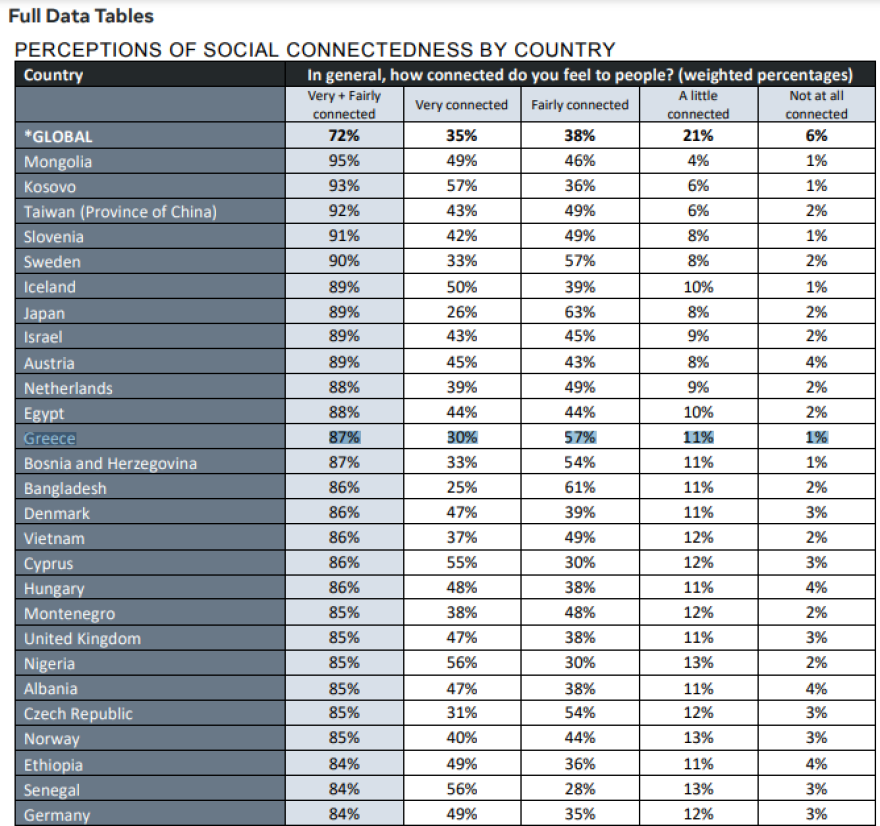
People worldwide reported that they interact with diverse social groups often (at least once a day), interactions with friends or family who live with them and in close proximity were the most frequent type of social interaction reported globally and in most countries.
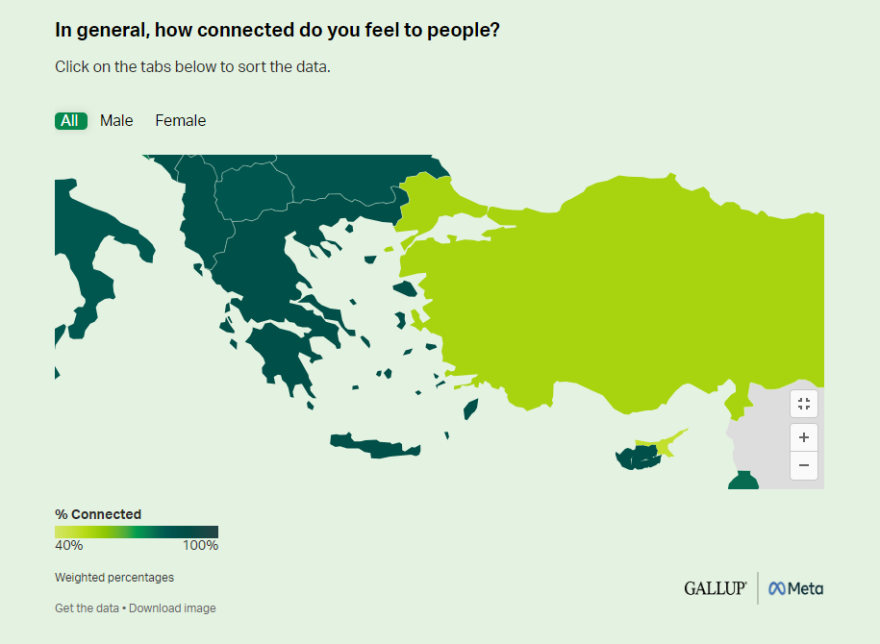
Overall, the Meta-Gallup survey suggests that most people feel socially connected, but the experience of social connection it varies from country to country depending on level and frequency.
High levels of social interconnectedness were reported in many countries around the world – from East Asia (Japan, Vietnam and the Philippines) to Scandinavia (Iceland, Finland and Sweden)from West Africa (Senegal, Nigeria and Ghana) to Australia and everywhere in between.
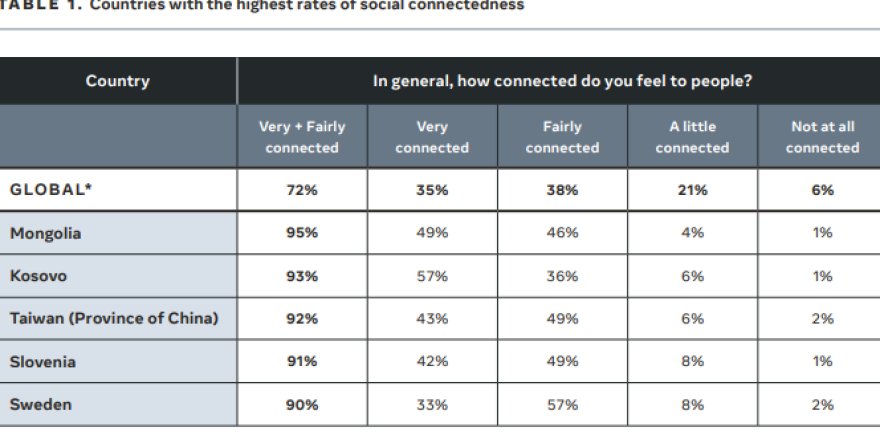
On the other hand, the percentage of people who feeli complete lack of social connections was very small in many countries. Two percent or less of the population did not feel connected at all in 25 countries, including Nigeria, her Japan and her of Estonia.
Although these percentages may seem negligible, depending on the size of the country, these percentages may still amount to millions of people who lack social connections.
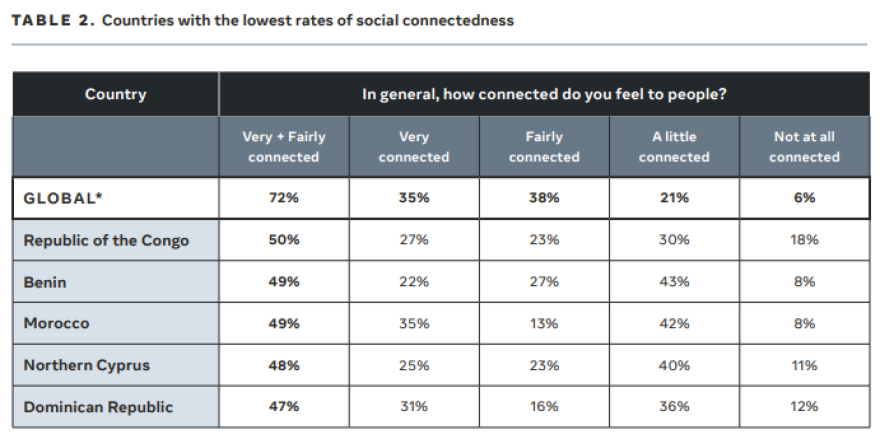
Loneliness
Many people experience feelings of loneliness and at times there is no one to talk to, laugh with or turn to for support. But for some people, feeling lonely can become a persistent and pervasive part of their lives, casting a huge shadow that can affect their health.
About one in four people – 24% of the world’s population and over a billion people in all the countries surveyed – said they felt “very lonely” or “quite lonely”. Half of the people surveyed (which translates to about 2.2 billion) did not feel lonely “at all”.
Like rates of social connection, rates of loneliness also vary from country to country: Reports of being or quite lonely were as low as 5% (Vietnam) and 58% (Lesotho).
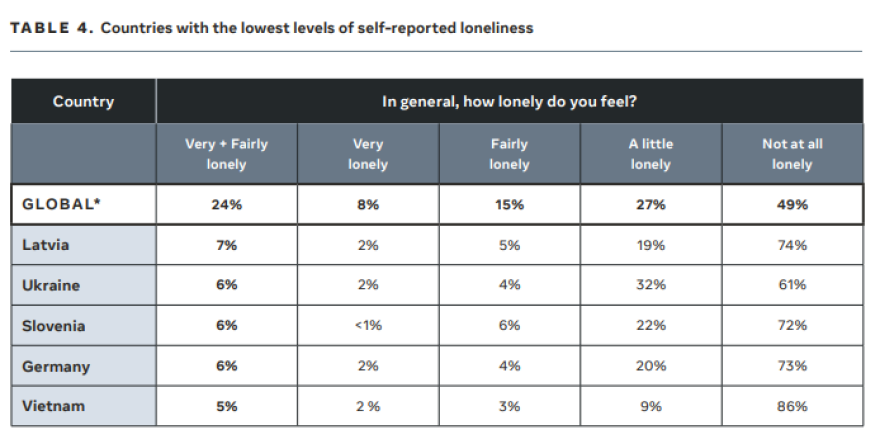
Less than 10% of the population said they were very or fairly lonely in 19 countries, including Germany (6%), Slovenia (6%) and Kyrgyzstan (8%). However, there were 29 countries, viz
such as Ethiopia (36%) and Pakistan (41%), where at least a third of the population reported feeling lonely.
In five countries, at least half of people said they felt lonely.
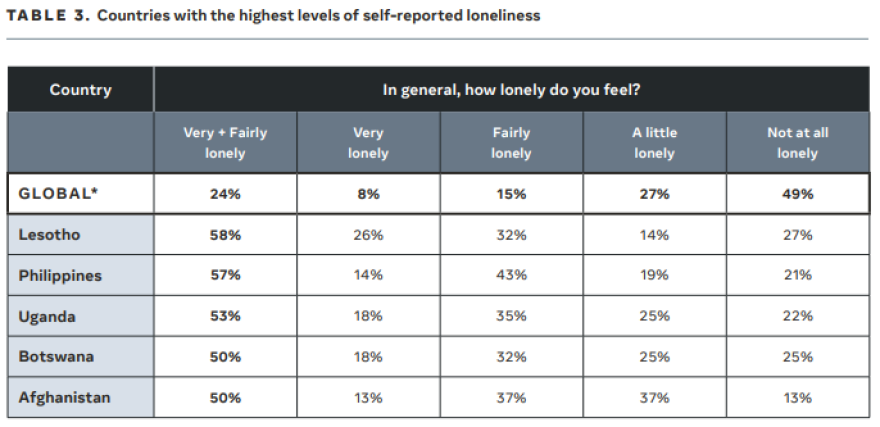
“Connection” rates by age
Globally, reported feelings of social connectedness were similar across age groups, ranging from 71% among young adults
19-29 year olds and adults aged 30-44, up to 75% among those 65 and over.
The percentage experiencing no connection was also similar: 5% of teens (ages 15-18) reported not feeling connected to others at all, and the percentage among all other age groups was just one to two points higher.
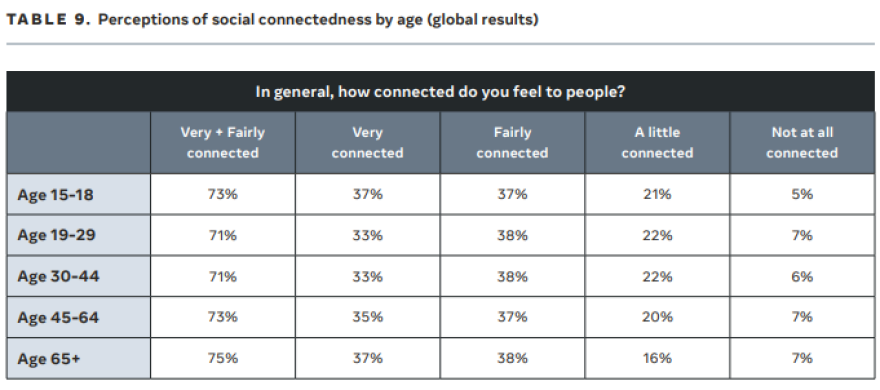
Global trends in loneliness were more varied by age group than those in social connectedness, with a rate of loneliness among older adults (aged 65+) 10 percentage points lower than that of young adults (aged 19-29).
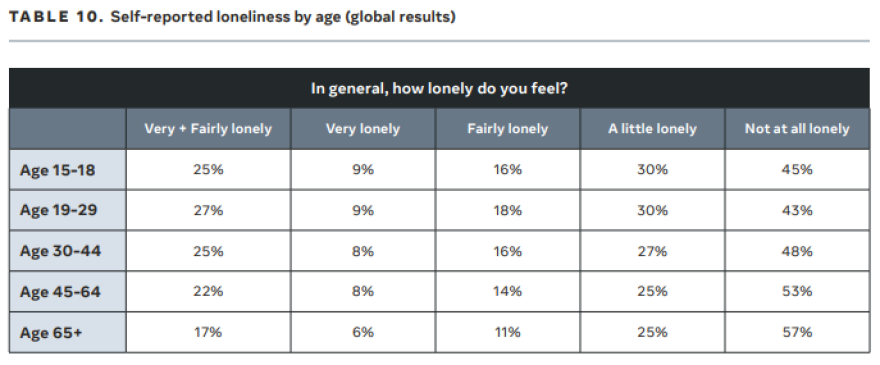
The percentage of older adults who said they did not feel lonely at all (57%) was 14 percentage points higher than that of young adults (19-29.43%) who said the same.
Greece is one of the biggest “connections” with the family
When people think of social relationships in their lives, friends and family usually come to mind. This is no surprise: Social ties to friends and family can often have a noticeable impact on people’s lives – their activities, even their health.
However, people may also interact with others at work and school, with their neighbors and people who live near them, groups of people who share the same interests or activities, and even with strangers.
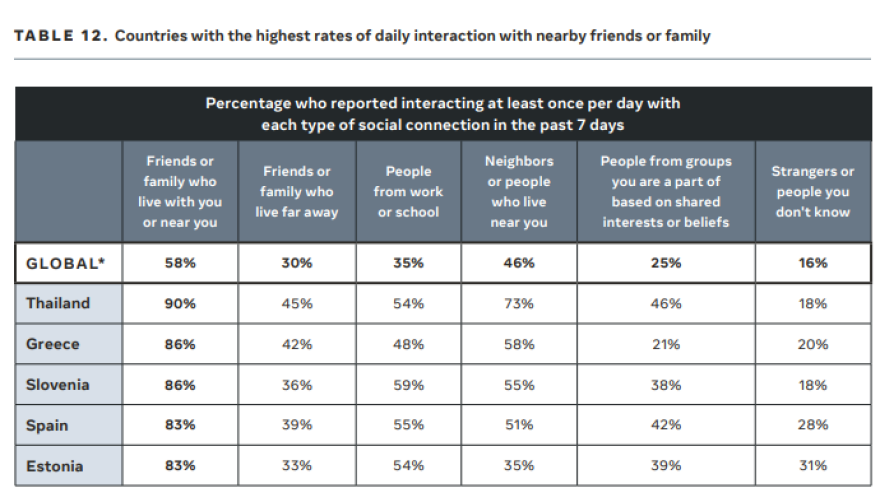
In most countries the majority of people reported daily interactions with friends or relatives who live with them or near them, but the percentages ranged from 21% in Lithuania to 90% in Thailand. Similarly, daily interactions with neighbors or people living nearby ranged from 15% in Lithuania to 78% in Liberia, and daily interactions with strangers ranged from 3% in Bangladesh to 42% in Liberia.
Globally, the most common source of daily interaction was close friends or family: in 119 of the 142 countries and territories surveyed (84%), reported rates of daily interaction with this group exceeded those with any other type of social connection. In fact, Greece is second in this category with 86% in daily contact with friends or family who live near them. Thailand is first with 90%.
